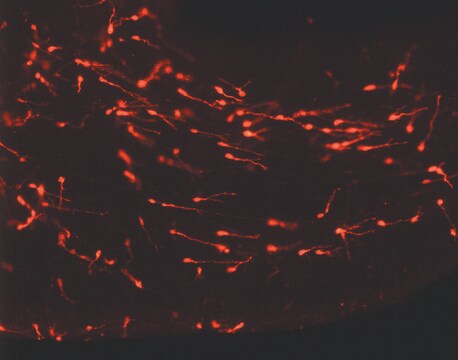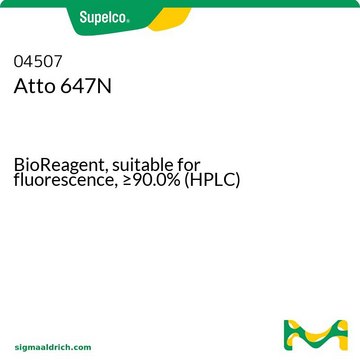18620
Atto 633
BioReagent, suitable for fluorescence
About This Item
Productos recomendados
Línea del producto
BioReagent
Nivel de calidad
Análisis
≥90.0% (HPLC)
formulario
solid
fabricante / nombre comercial
ATTO-TEC GmbH
λ
in ethanol (with 0,1% trifluoroacetic acid)
Absorción UV
λ: 627-633 nm Amax
idoneidad
suitable for fluorescence
temp. de almacenamiento
−20°C
Aplicación
Información legal
Código de clase de almacenamiento
11 - Combustible Solids
Clase de riesgo para el agua (WGK)
WGK 3
Punto de inflamabilidad (°F)
Not applicable
Punto de inflamabilidad (°C)
Not applicable
Equipo de protección personal
Eyeshields, Gloves, type N95 (US)
Certificados de análisis (COA)
Busque Certificados de análisis (COA) introduciendo el número de lote del producto. Los números de lote se encuentran en la etiqueta del producto después de las palabras «Lot» o «Batch»
¿Ya tiene este producto?
Encuentre la documentación para los productos que ha comprado recientemente en la Biblioteca de documentos.
Los clientes también vieron
Artículos
Fluorescence lifetime measurement is advantageous over intensity-based measurements. Applications include fluorescence lifetime assays, sensing and FLI.
Nuestro equipo de científicos tiene experiencia en todas las áreas de investigación: Ciencias de la vida, Ciencia de los materiales, Síntesis química, Cromatografía, Analítica y muchas otras.
Póngase en contacto con el Servicio técnico




